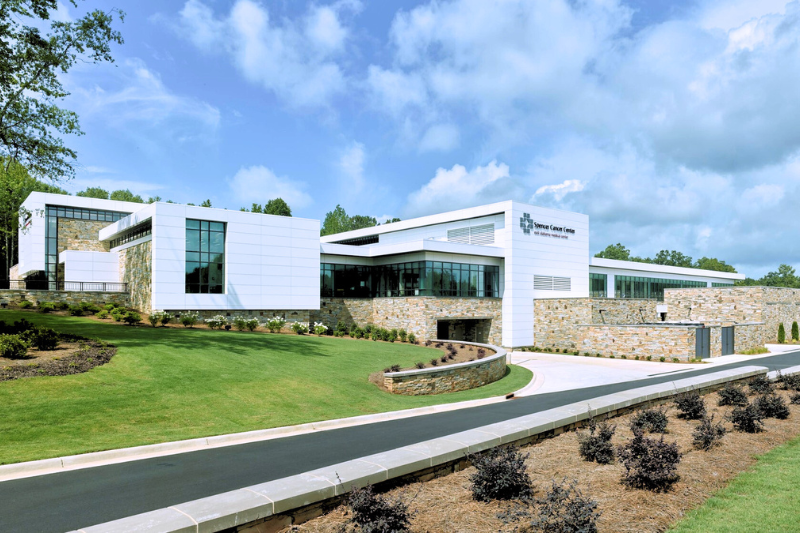Genetic Counseling
The Spencer Cancer Center offers oncologic genetic counseling for eligible patients, allowing them to identify inherent risks and navigate their cancer journey.
Navigating cancer can be difficult for many patients. While most cancers are not hereditary, patients who work with a genetic counselor gain insight into the hereditary risks associated with their condition that they can incorporate into their decision-making regarding treatment.
Patients interested in speaking with the Spencer Cancer Center's genetic counselor should speak to their oncologist about scheduling an appointment.
What is the purpose of genetic counseling?
Genetic counseling aims to document your personal and family cancer history, explain cancer genetics and hereditary cancer syndromes. This can provide insights into the implications of genetic testing for you and your family, including its benefits, risks, and limitations.
Who qualifies for genetic counseling at the Spencer Cancer Center?
Cancer genetic counselors follow the National Comprehensive Cancer Network (NCCN) guidelines to determine if a patient meets criteria for genetic testing. These guidelines aim at capturing all individuals with a personal and/or family history of cancer that is significant for certain red flags for hereditary cancer syndromes. These include, but are not limited to:
- Three cancers of the same type, or related cancers, on the same side of the family. For example, a personal history of breast cancer and two maternal relatives with breast cancer.
- Most cancer diagnoses at age 50 or younger.
- Certain cancer diagnoses meet criteria for testing automatically, regardless of age of diagnosis
- Ovarian cancer
- Pancreatic cancer
- Metastatic prostate cancer
- Medullary thyroid cancer

